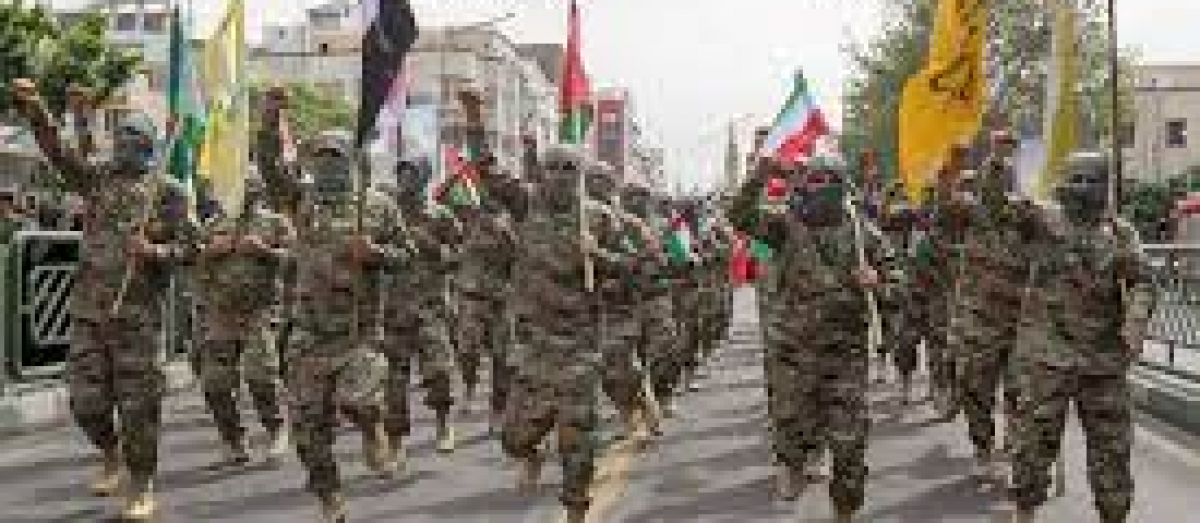Recently following a US response to attacks by the Houthi Rebels in Yemen, U.S. President Biden was asked if the U.S. is in a proxy war with Iran. He said no, but he was wrong.
The Houthi Rebels serve Iran’s objective in Yemen and are armed, funded, and probably trained by Iran. If the U.S. fights the Houthi Rebels in Yemen, then the U..S. if fighting against Iran.
Now, the U.S. is preparing to strike Iranian proxy targets in Iraq, Syria, and probably Lebanon.
The U.S. is most definitely directly involved in fighting against Iran in a proxy war. It’s the Iranian proxies attacking the U.S. and U.S. Interests, the U.S. is firing back. It’s that simple.
It seems that Iran doesn’t see it as a proxy war because they say that they were not involved in the decisions to attack U.S., and in fact, had know advance knowledge of it. What Iran is saying that these militia groups were not working with or for Iran in carrying out these attacks. Iran has stated the same about the October 7 attack on Israel – that, even though they support Hamas, Hamas carried out this attack without them.
This leaves questions. Is Iran lying to try to beg off a U.S. attack? Or have they lost control of their proxies?
Proxy War Definition:
A proxy war is a conflict where two opposing countries or groups support combatants that serve their interests instead of waging war directly against each other. These proxy forces are armed, funded, and often directed by external powers to achieve strategic objectives without direct military engagement.
Iranian Proxies in the Region:
1. Iraq:
In Iraq, Iranian proxies play a significant role in the country’s political and security landscape. Shiite militia groups, such as the Popular Mobilization Forces (PMF), Kata’ib Hezbollah, and Asa’ib Ahl al-Haq, receive support from Iran and are often described as Iranian proxies due to their close alignment with Tehran’s interests. These groups have been involved in fighting against Sunni extremist groups like ISIS and have also targeted Western interests in the region.
2. Yemen:
The conflict in Yemen has evolved into a proxy war with regional powers backing opposing sides. Iran supports the Houthi rebels, also known as Ansar Allah, providing them with weapons, training, and financial assistance. The Houthis have launched attacks against Saudi Arabia, Iran’s regional rival, using Iranian-supplied drones, missiles, and other weaponry. The Saudi-led coalition, supported by the United States and other Western powers, intervenes on behalf of the Yemeni government, creating a proxy conflict between Iran and Saudi Arabia.
3. Syria:
In Syria’s civil war, Iran supports the regime of Bashar al-Assad, providing military advisors, financial aid, and Shiite militia fighters from Iraq, Lebanon (Hezbollah), Afghanistan, and elsewhere. These proxy forces fight alongside Syrian government troops against rebel groups and jihadist organizations. Iran’s involvement in Syria is driven by its desire to maintain a strategic foothold in the Levant and protect its interests in the region, including its support for Hezbollah in Lebanon.
4. Lebanon:
Hezbollah, a Shiite militant group and political party based in Lebanon, is perhaps the most prominent Iranian proxy in the region. Hezbollah receives significant support from Iran, including funding, weapons, and training. It has waged wars against Israel and has been involved in conflicts in Syria and Iraq, furthering Iran’s regional agenda.
5. Gaza Strip:
While not as direct as its support for Hezbollah, Iran also provides backing to Palestinian militant groups in the Gaza Strip, such as Hamas and Islamic Jihad. These groups receive funding, weapons, and training from Iran and have launched attacks against Israel, serving Iran’s interests in challenging Israel’s regional dominance and supporting the Palestinian cause.
In each of these conflicts, Iranian proxies serve as instruments through which Tehran extends its influence, advances its geopolitical objectives, and counters its regional rivals, particularly Saudi Arabia and Israel. These proxy wars contribute to the destabilization of the Middle East and complicate efforts to resolve conflicts through diplomatic means.


